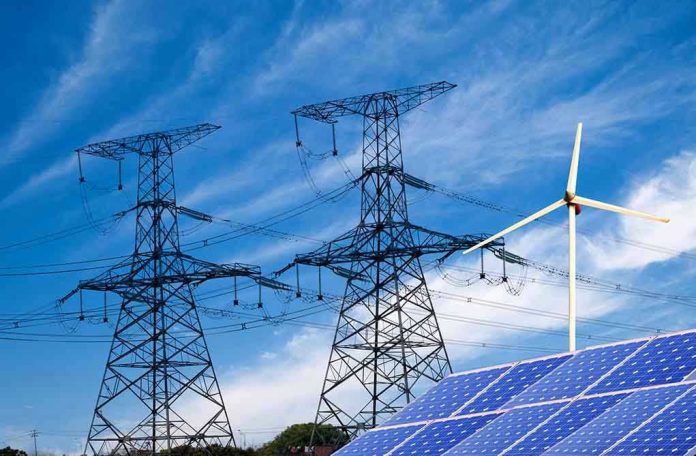
If you thought Taiwan was just about high-tech gadgets and spicy night markets, wait until you see the latest “woke” energy experiment being exported across Asia—complete with artificial intelligence trading platforms and a promise to “democratize” your power bill. But who really benefits when Big Tech and Big Government start merging under the renewable banner?
At a Glance
- Taiwan’s HD Renewable Energy launches the “Power Bank” AI energy trading platform, pushing renewable market disruption across Asia
- Platform promises cross-border trading in Taiwan, Japan, and Australia, with ambitions to upend traditional utilities
- Company touts “smart grids” and “peer-to-peer” sharing, but questions linger about privacy, oversight, and who’s really in control
- IPO planned for 2027, signaling a new breed of energy-tech conglomerate that could reshape power and regulation in the region
The AI “Power Bank”: Asia’s New Energy Overlord?
HD Renewable Energy (HDRE), now a heavyweight in Taiwan’s solar and renewable energy sector, has dropped its latest brainchild: the Star Exchange “Power Bank” platform. The company claims this cross-border, AI-driven trading system will liberate electricity markets in Taiwan, Japan, and Australia—all in the name of efficiency, flexibility, and consumer empowerment. Sounds familiar, doesn’t it? Slap an “AI” label on anything these days, and suddenly it’s the future, not a power grab.
Edward Hsieh, the financial whiz behind HDRE, has built the company from a scrappy startup to a 350-plus-employee multinational in less than a decade. Now, with strategic mergers and flashy partnerships (including a 115MW solar PPA with global giant Lightsource bp), HDRE is angling to become the Amazon of Asian electricity. Their latest move: using AI to turn energy into a tradable commodity, much like Wall Street hawks play with your pension. But instead of stocks, it’s your power bill on the line. And the timing? Just as utility costs and inflation squeeze the middle class from Tokyo to Taipei.
From Solar Panels to Data Harvest: Who’s Watching the Grid?
The new “Power Bank” platform promises to aggregate everything: generation, consumption, storage, and even peer-to-peer energy sharing. That means your rooftop solar panels, your neighbor’s scooter charger, and a corporate solar farm can all be plugged into a digital marketplace—if you trust the algorithm. Sure, market innovation and “flexible pricing” sound great. But when was the last time Big Tech’s idea of transparency worked out for the average citizen? The same folks who push for “decentralized” energy now want all your usage data streaming through their servers, processed by proprietary AI, and traded by remote financiers. If you think this ends with lower bills and more freedom, I have a bridge in Brooklyn to sell you.
HDRE is lining up for a 2027 IPO, and they’re not shy about their ambitions: become an “international smart power company,” modernize national grids, and set the rules for a new era of energy “sharing.” But let’s not ignore the risk here. With utilities facing competition from tech-driven upstarts, governments under pressure to meet climate mandates, and consumers left to decipher the fine print of digital contracts, it’s a perfect storm for regulatory loopholes and privacy headaches. And that’s before the hackers show up.
Who Wins When Energy Goes Global—and Who Pays?
Proponents call this vision a leap toward efficiency and sustainability. Industry analysts hail the AI integration and financial market-style trading as a model for the future. Academics, always eager for the next grant, point out that smart grids could support national decarbonization goals. But none of these cheerleaders are paying your bills, or answering to the small business owner when “market-driven” power spikes wipe out a quarter’s profits overnight.
Meanwhile, traditional utilities face an existential threat, local regulators scramble to keep up, and your family’s privacy is now just another data point for the energy-industrial complex. If there’s a lesson from recent history, it’s that when you hand the keys to unelected technocrats and unaccountable algorithms, the average citizen gets left in the dark—figuratively and, if the grid goes haywire, literally.
To be clear, renewable energy and innovation aren’t the problem. The problem is when “saving the planet” becomes the excuse for unchecked corporate expansion, cross-border data mining, and a new layer of “market-based” bureaucracy that nobody voted for. If Taiwan’s AI power revolution is the model, expect the next wave of globalism to hit you right where it hurts: your home, your wallet, and your freedom to choose how you power your life.













